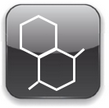PARA
Thermoplastics > Superpolymers
Polyarylamide (PARA) | ||
Polyarylamide (PARA) is a semi-crystalline aromatic polyamide, provides a unique combination of strength and aesthetics and has a very high tensile and tear strength equivalent and often higher than that of many metals at room temperature, which It makes ideal for complex parts that require a general strength and a smooth and beautiful surface. It has marked thermal characteristics, which makes it useful for applications at high temperatures, with water vapor or with aggressive water additives. The upper temperature of use varies, depending on the type, from 130 to 160 ° C (for a short time, even from 200 to 210 ° C). Partly self-extinguishing, they can improve with the addition of flame-resistant additives. The thermal resistance can be improved by adding heat stabilizers. | ||
| PARA properties | ||
Thanks to an extremely high fluidity, you can easily fill walls as thin as 0.5 mm, even with glass loads of up to 70%. The tensile and flexural strength of PARA compounds are similar to many molten metals and alloys at room temperature. A PARA with 65% fiberglass exhibits typical values of 300 MPa up to 400 MPa at 23 ° C. It has a lower absorption of water and slower than normal polyamides, therefore, has a lower tendency to distortion. The coefficient of linear thermal expansion (CLTE) of the resin at room temperature is very low, similar to that of metals or metal alloys. The PARAs are increasingly used in the electrical and electronic sectors, in particular for the control of internal mechanisms and switches. This use is justified by the good electrical insulation properties of the material, combined with a high dielectric strength in a wide range of temperatures and very long periods. |  | |
| Synthesis and chemical resistance | ||
Polyimides are non-meltable polymer that resist high temperatures, therefore it can be processed by sintering, large quantities of finished parts can be produced using the Direct Forming process. High-speed mechanical or hydraulic automatic presses are generally used, which compact the powder in the mold cavities and then sinter for a few hours at high temperatures without oxygen. |  | |
| Processability | ||
Polyimides are non-meltable polymer that resist high temperatures, therefore it can be processed by sintering, large quantities of finished parts can be produced using the Direct Forming process. High-speed mechanical or hydraulic automatic presses are generally used, which compact the powder in the mold cavities and then sinter for a few hours at high temperatures without oxygen. | ||
Applications | ||
Due to the high chemical resistance they are used in the automotive industry and in transportation as; petrol pumps, clutch parts, windscreen wiper controls, oil filter ducts, door handles, bicycle brakes, brake system components, clutch cylinders, door mirror bracket, used as a substitute for metal (the replacement of metal). In electronic safety switches, for telecommunication, for plates and vacuum cleaners, shavers, electric heads, leisure applications, furniture and machine tools, surgical instruments, such as tweezers, scissors) and the supply of water sector ( such as block water distribution). |  | |
